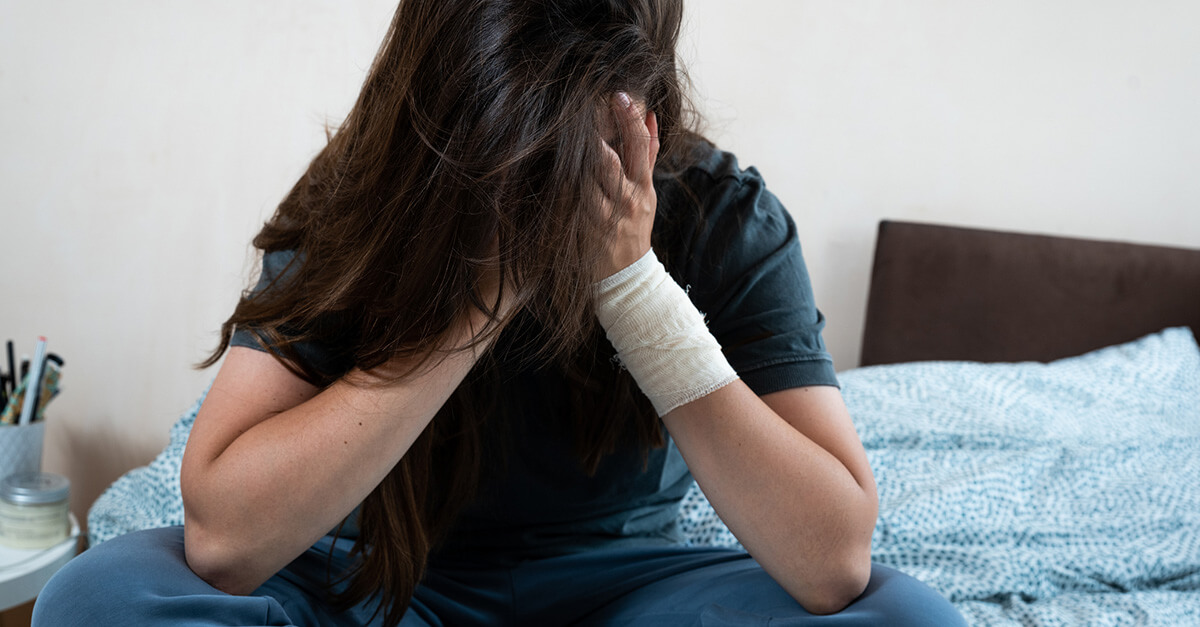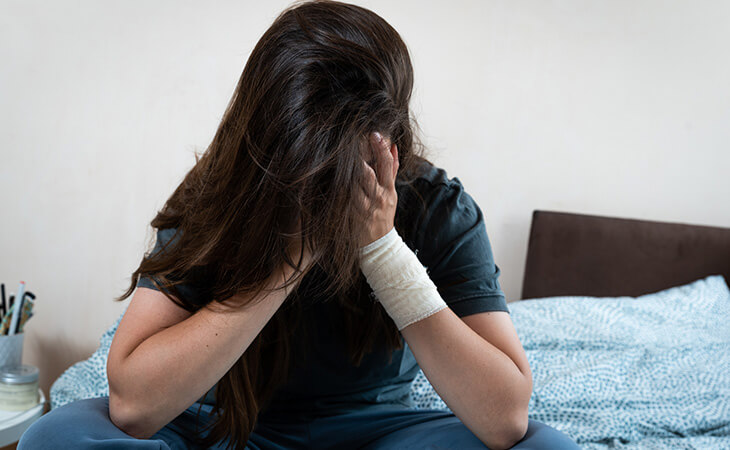What motivates self-harm? Answers from the Inspire community

If you or a loved one have a history of self-harm, or may be at risk of self-injury, reading about others' real-life experiences with this challenging issue can be helpful in understanding why it occurs and how to cope with it. We've collected authentic accounts of self-injury from the Inspire community to help you understand the reasons people engage in these behaviors.
You can add your voice to the discussion about self-injury and other important mental health issues by joining the Inspire Mental Health America community. This content should not be used as a substitute for professional medical advice, diagnosis, or treatment. As always, consult with your doctor before trying any new treatments or medications.

Why do people self-harm?
As with any significant mental health challenge, self-harm is a highly individual issue. Some reasons include the following:
depression
dissociation
trauma
obsessive-compulsive disorder (OCD)
heightened emotional states
The content below contains descriptions written by people who are living with self-harm tendencies. If this type of material could be triggering for you, please proceed with caution.
Some people self-harm to numb their pain or distract from inner turmoil, while others who feel numb (or dissociative) rely on the pain to feel more at home in their bodies or to regain a sense of control.
“When I was a teen, my reason for cutting was to feel physical pain to rid my mind of the mental/emotional pain that I felt. I never did it to the point of the cut being deep enough to where I had to seek medical attention. I wanted to live, just not to be suffering in the way I was.” View post
“You have to remember self harm doesn’t make you weak; it’s an expression of your pain. It’s not your fault and you shouldn’t punish yourself. The urge personally never goes away, and the only thing that stops me it’s because I scar so easily even a scratch will stay and look ten times worse.” View post
“I self-harmed yesterday for the first time in years. I feel stupid for doing it now but at the time my depression and anxiety were so bad I just had to feel something else to alleviate it.” View post
“My 13 year old son struggles with self harm. He doesn't seem to know what triggers it other than he just wants the ‘pain and hurt to stop.’” View post
“I've caused myself self harm since I was 13, it seems most of the triggers are from feeling out of control or overwhelmed with emotions. I can sometimes go months without an incident but I've been realizing lately that I'm struggling with the urges to hurt myself more and more.” View post
Dissociative disorders make you feel disconnected from yourself, others, or the world around you. Survivors of childhood trauma are most at risk. Learn more about dissociative disorders and how they can relate to self-harm.
Other motivations for self-injury include feelings like frustration or a sense of worthlessness.
“My son is 21 and has been diagnosed with ADD, Social Anxiety and Depression. He is a good kid that doesn't drink or do drugs but is lazy without his ADD medicine. He really suffers from self-esteem issues even though he is normal, good-luck guy....Today he cut himself because he continues to think everyone hates him...that he is ugly and dumb. He is very introverted which makes things much harder.” View post
For some people, self-harm can become an addictive obsession that's reinforced each time they hurt themselves. This can make recovery and long-term abstinence extremely difficult.
“It has been 7 years since I have cut, but when I was told about his incident it brought back all sorts of memories of how it helped me deal. Because I have chronic depression issues, I have been unable to stop thinking about cutting. Every time I get stressed I think about how to cut without anyone finding out. These thoughts have added to my depression because I feel guilt for having the thoughts at all. I seem to have just spiraled since then. Therapy helped for a little bit but I stopped going when I felt like it wasn't helping enough. I take a decent dose of medication and have tried several kinds throughout the last 15 years.” View post
“I used to self-harm. I no longer do. Here are some things I have learned about it from my own experience:
1. It is seductive and addictive. The more I gave into the urge to self-harm, the more it reinforced that that was what I needed to do to cope. Every time I reinforced that pathway in my brain, it made it harder to break that pathway later. I think of it like wearing a path into the ground. The more you tread the same path, the deeper the groove in the earth where you walk, and, eventually, the harder it is to step out of that groove onto the flat ground again. By the way... I stopped only after I took a mis-step one night and really injured myself badly. I did not intend to do that, but that is where the addictive process led me, eventually. Now, I have a nasty scar that will always be with me. It reminds me of my past, and it also, I'm sure, signals to others what I had going on. I tell you this because if someone had told me where I might end up when I first began, it might have motivated me sooner to stop. I hope you will consider this.
2. For me, the urge came up, and still does come up, when I am deeply depressed and something is chemically awry in my brain. I have found a quick as-needed medication that corrects this in the short term that helps. If you have a psychiatrist, you might ask about something like this to help you if you want to stop.” View post
Curious to connect with other people managing their mental health? Join the Inspire Mental Health Community to read more and participate.
Sources
https://www.mayoclinic.org/diseases-conditions/dissociative-disorders/symptoms-causes/syc-20355215
Disclaimer
Member comments have been lightly edited for length and clarity. This content is for general informational purposes only and does not necessarily reflect the views and opinions of any organization or individual. The content should not be used as a substitute for professional medical advice, diagnosis, or treatment. Please consult your healthcare provider about any questions you may have regarding a medical condition.




